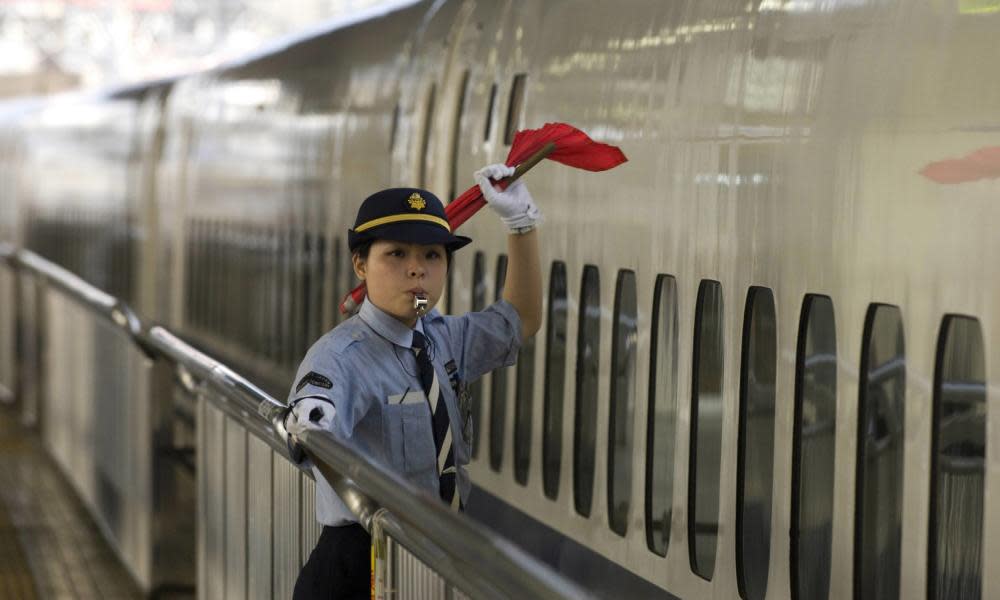Japanese rail company apologises after train leaves 20 seconds early

It was an admission that would no doubt raise a sardonic smile among many commuters, and perhaps have them dreaming of relocating to Japan.
The operator of a private railway firm that serves the Tokyo suburbs has issued an apology after one of its trains departed 20 seconds ahead of schedule.
Passengers boarding Tuesday’s 9.44.40am Tsukuba Express from Minami Nagareyama station, just north of Tokyo, were unaware anything was amiss when the train, which had arrived on time, pulled away from the platform at 9.44.20am.
The train’s operator, though, believed the foul-up was serious enough to warrant an apology. “We deeply apologise for the severe inconvenience imposed upon our customers,” the Metropolitan Intercity Railway Company said in a statement.
The train’s conductor had not properly checked the train’s timetable, the firm said, adding that the crew had been instructed to strictly follow procedure to prevent a recurrence.
Passengers who might have made the train had it left on time in fact suffered little inconvenience: the next one arrived just four minutes later.
While delays – even of just a minute – prompt profuse apologies by Japanese train operators, Metropolitan Intercity’s mea culpa drew inevitable, and unfavourable, comparisons with rail services in other countries.
Tsukuba Express issues #apology for leaving 20s early, I didn't disembark quick enough at Brighton: @SouthernRailUK locked me in. No apology
— Simon Woodgate (@echobass) November 16, 2017
The Tsukuba Express carries 130 million passengers a year between Akihabara in Tokyo and Tsukuba in Ibaraki prefecture, a journey of about 45 minutes.
Some on social media said early departures were not uncommon in Japan. While others lauded Japan’s super-efficient rail service as one of the country’s greatest attributes, the quest for punctuality can go tragically wrong.
In 2005, more than 100 people died and hundreds more were injured when a packed commuter train left the tracks and crashed into an apartment complex in western Japan.
The derailment occurred after the driver used excessive speed in an attempt to make up for a 90-second delay.
Rail unions blamed the crash on a culture of fear in which employees were subjected to humiliating punishments for committing minor errors such as arriving seconds late or slightly overrunning platforms.

 Yahoo News
Yahoo News 
